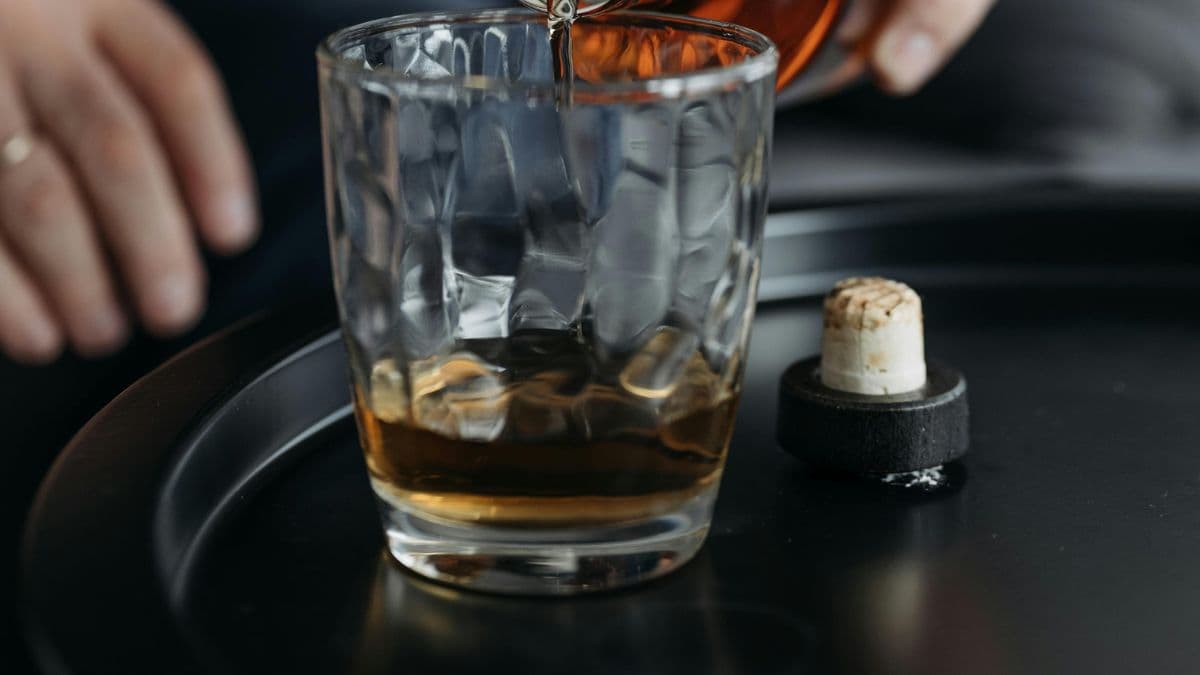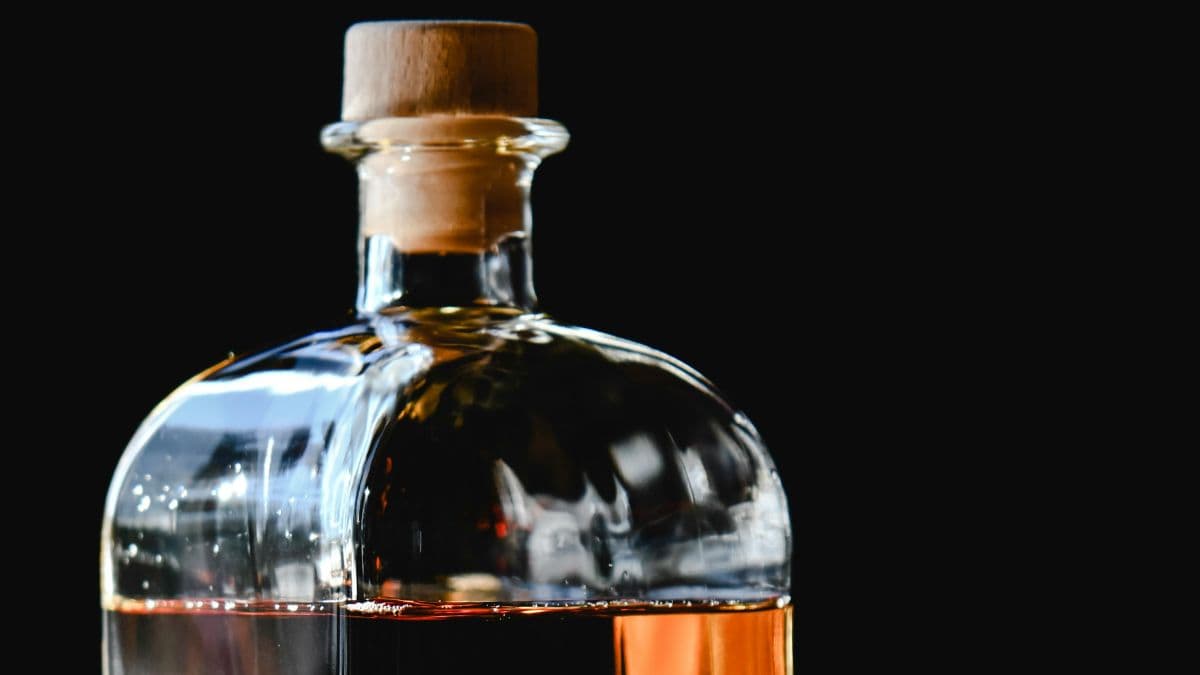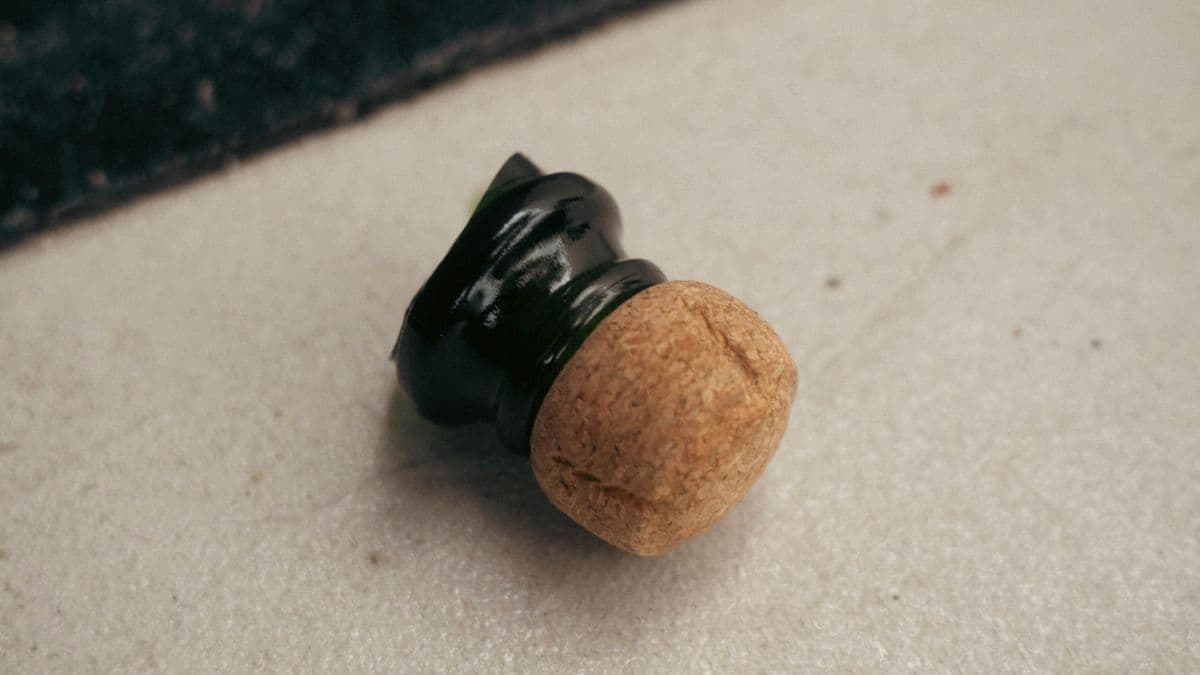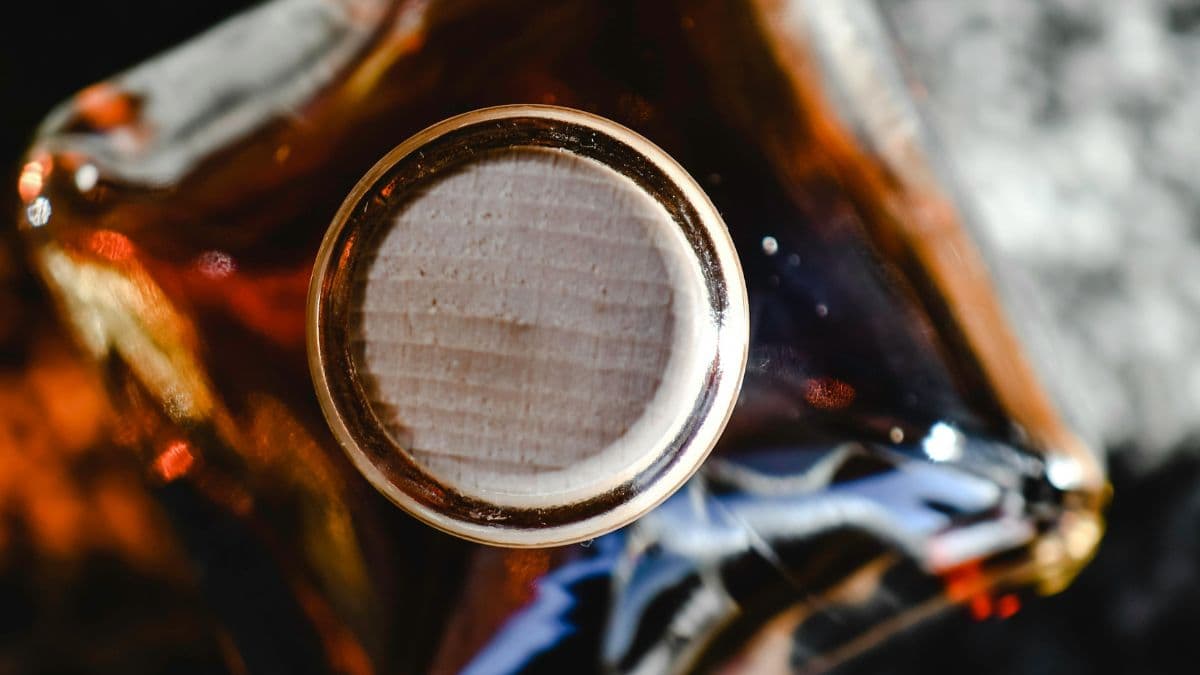Why Does A Whisky Bottle Come Without A Cork? Here’s This Burning Question — Answered
While fine wines are often associated with the cork pop or the act of uncorking the bottle to reveal the complex aromas of the spirit, a whisky bottle seldom experiences this process. That’s because many whisky bottles, unlike those of wine, come without a cork. They are often sealed with a regular bottle cap or with screw caps, depending on the type, make and quality of the whisky.
Connoisseurs would well be familiar with this phenomenon. But for an amateur, this might pose a puzzle — why does a whisky bottle come without a cork, unlike other premium spirits? This has got less to do with the premium-ness, or lack thereof, of whisky and more to do with reasons pertaining to flavour, textural preservation and just a smidge of tradition.
Here’s an exploration of why a whisky bottle comes without a cork and why it is sealed with a screw cap:

Whisky Stops Ageing In The Bottle
Contrary to popular conception, whisky actually stops ageing once it is bottled. One might buy a premium Scotch and keep it sealed for years together. But this will have quite a negligible impact on the whisky’s flavour. Unlike wine, whisky cannot evolve once it is stored in a bottle. Its character, flavour, aroma and maturity all come from the casks in which it is aged for years together. So, there is no reason to let oxygen seep into the liquid inside the bottle, making cork closure slightly redundant. What works best instead is a tight, reliable seal.
Also Read: Neat, On the Rocks and More Exploring the Best Ways to Enjoy Whisky

Screw Caps For Airtight Closure
Unlike a wooden cork, a regular screw cap facilitates a more airtight closure in a whisky bottle. This is necessary because corks tend to be porous. Sometimes, they can dry out, shrink or crumble, leading to oxidation and leakage. Because whisky often has a long shelf life and is stored for a long time in a connoisseur’s home bar, a screw cap becomes the more stable choice, for ensuring consistency.

Climate And Storage
Corks have a tendency to crumble which allows external air to seep into the whisky. In tropical climes, this can lead to evaporation and degradation of the spirit. As well, the ABV content in the whisky can also degrade the cork over time. And if it crumbles and seeps into the whisky, this can definitely alter the taste of the spirit. So, climate, storage and their impact on taste are some of the crucial reasons why whiskies are sealed with screw caps.

Presentation Vs. Practicality
While corks are generally associated with an artsy flourish and presentation, the functionality of the screw cap over a whisky bottle is far more practical. However, some whisky bottles are nonetheless adorned with decorative cork stoppers, more for aesthetics and a traditional touch. Many high-end bottles stick to screw caps all the same because they are far more useful and foolproof when it comes to maintaining the quality of the whisky inside.
Also Read: World Whisky Day 2025: Indian, Scotch And Japanese Whiskies You Can Explore On A Budget
A Different Tradition
And what’s more, corks are traditionally associated with wine-making cultures, where the cork has a role to play in the maturation and of the spirit stored in the bottle. Whisky producers instead age their spirits in casks. They prioritise stability of the spirit and long-lasting taste. One of the significant aspects associated with the screw caps instead of the corks is the taste that comes from cask ageing. Once the whisky is aged and bottled, the master blenders are more focused on enabling a tasting of the spirit as it was made — unchanged and tightly sealed.
Drink Responsibly. This communication is for audiences above the age of 25.




